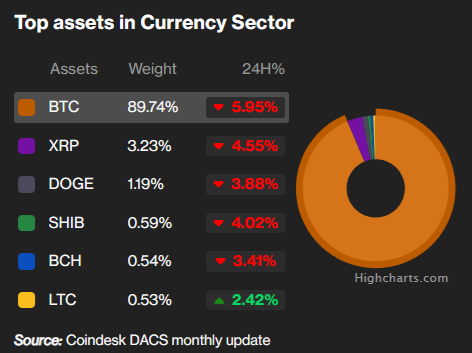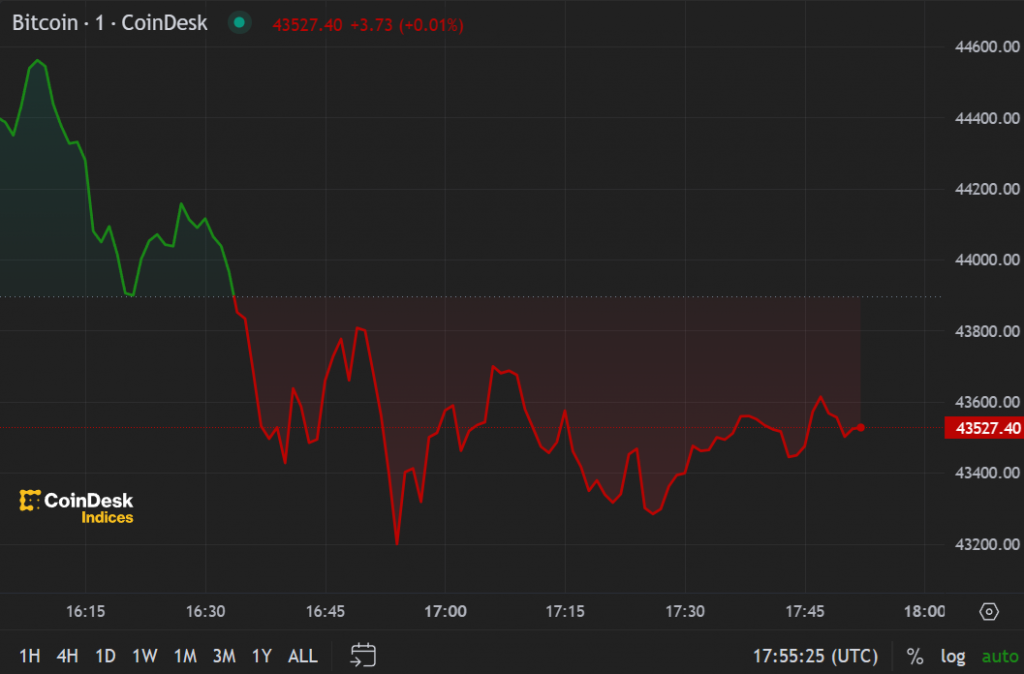
The approval of Bitcoin exchange-traded funds (ETFs) by the United States Securities and Exchange Commission (SEC) is a landmark event that signifies a major shift in the financial world’s approach to cryptocurrencies. This decision has several key implications that are worth exploring in detail.
The SEC’s decision to approve Bitcoin ETFs brings a newfound level of legitimacy to Bitcoin and, by extension, to the entire cryptocurrency sector. For years, cryptocurrencies have been viewed with scepticism by mainstream investors and financial institutions, largely due to their volatility and the lack of regulatory oversight. However, the SEC’s approval is a clear indication that cryptocurrencies are gaining acceptance within the established financial system. This move is likely to encourage a broader spectrum of investors, including those who were previously cautious, to consider investing in cryptocurrencies. It signifies a potential shift in the perception of cryptocurrencies from being a niche, speculative asset to a more recognised and potentially stable investment option.
READ I Will India’s growth story outrun rising debt, wobbling rupee?
Impact on green signal to Bitcoin ETFs
The approval of Bitcoin ETFs has already made a significant impact on the market, particularly on Bitcoin’s price. There has been a substantial surge in the value of Bitcoin, which rose from a low of $16,000 in November 2022 to around $46,500 following the SEC’s announcement. Some analysts have even speculated that the price could soar as high as $100,000. While this is good news for investors who have already bought into Bitcoin, it does raise concerns about increased market volatility. Bitcoin and other cryptocurrencies are known for their rapid price fluctuations, and the introduction of ETFs could exacerbate this trait. This volatility poses a risk, especially to retail investors who may not be fully prepared for such rapid and significant price changes.


The introduction of Bitcoin ETFs into traditional financial markets is not without its challenges. One of the primary concerns is the potential for the notorious volatility of Bitcoin to spill over into the broader financial market. Given the interconnected nature of financial instruments, the fluctuations in Bitcoin’s value could have a ripple effect, impacting investors who might not have directly invested in cryptocurrencies. This development could also lead to a re-evaluation of risk profiles for various financial products and could necessitate new strategies for risk management within the traditional financial markets.
The SEC’s approval paves the way for significant institutional involvement in the cryptocurrency space. Major financial firms such as BlackRock, Fidelity, and Invesco are now positioned to play pivotal roles in the cryptocurrency market. This shift indicates a growing interest and confidence in cryptocurrencies among institutional investors. It also suggests a future where we might see more diversified and sophisticated cryptocurrency investment products, potentially increasing the overall stability and maturity of the crypto market.
Regulatory challenges and investor protection
Despite its approval of Bitcoin ETFs, the SEC maintains a stance of caution and scepticism towards cryptocurrencies. The concerns expressed by SEC Commissioners regarding the potential risks to retail investors highlight the ongoing challenges in achieving a balance between fostering innovation and ensuring investor protection. This approval does not imply an endorsement of Bitcoin or cryptocurrencies at large; rather, it signifies a recognition of their growing role in the financial ecosystem and the need for regulatory frameworks to manage them effectively.
The SEC’s decision is likely to have global implications, particularly in countries that are still formulating their regulatory approach to cryptocurrencies. For instance, countries like India, which have so far adopted a cautious and sometimes restrictive stance towards cryptocurrencies, might be influenced to reconsider their policies. The US’ integration of Bitcoin into its financial system could serve as a model for other countries, prompting them to explore similar integration or develop appropriate regulatory measures to manage the associated risks.
Concerns over cryptocurrency’s fundamental flaws
While the SEC’s approval is a significant step towards the integration of Bitcoin into the traditional financial system, it does not address some of the fundamental issues associated with cryptocurrencies. The anonymity of cryptocurrencies, which can be exploited for illicit activities such as money laundering, remains a significant concern. Furthermore, the approval does not tackle the challenges related to the environmental impact of cryptocurrency mining or the technical vulnerabilities inherent in blockchain technology. These issues continue to be areas of concern that require attention and regulation.
The environmental impact of mining certain cryptocurrencies and the potential technical vulnerabilities in blockchain technology are areas of concern that have not been directly addressed by the SEC action. The energy-intensive nature of cryptocurrency mining, particularly for Bitcoin, raises significant environmental concerns. Additionally, while blockchain technology is generally secure and difficult to hack, it is not immune to technical glitches and security vulnerabilities. These aspects underscore the need for continuous technological advancements and environmental considerations in the evolving landscape of cryptocurrencies.
The SEC approval marks a significant step towards the mainstream acceptance of cryptocurrencies, offering both opportunities and challenges. It highlights the evolving nature of the financial markets and the need for regulatory bodies worldwide to adapt to these changes. Balancing innovation with investor protection and market stability will be crucial as the cryptocurrency market continues to develop.
India’s cryptocurrency policy
India’s approach to cryptocurrency regulation is complex, marked by cautious steps and a focus on risk management. The country’s stance on cryptocurrencies offers a glimpse into the challenges and considerations faced by a major economy in integrating new financial technologies while ensuring stability and compliance.
Cryptocurrencies are not recognised as legal tender in India. This distinction restricts their use in everyday transactions, setting a clear boundary between conventional financial systems and digital currencies. Despite this non-recognition, the Indian government and regulatory bodies have taken several steps to manage the sector. A pivotal move in this direction was in 2018 when the RBI banned banks from providing services related to virtual currencies. This decision significantly curtailed institutional involvement in the cryptocurrency market, reflecting the government’s cautious approach towards these digital assets.
In 2022, India introduced a tax regime for cryptocurrencies. This included a substantial 30% tax on gains from cryptocurrencies and a 1% tax deducted at source on cryptocurrency transactions. This step indicated a shift from outright restriction to a more regulatory approach, acknowledging the presence and economic implications of cryptocurrencies.
Since March 2023, cryptocurrencies have been brought under anti-money laundering regulations. This mandates stricter compliance from exchanges and service providers, aligning the crypto sector with other financial services in terms of regulatory oversight. These measures are indicative of an effort to bring more transparency and accountability to a market that is often criticised for its opacity.
The legislative aspect of India’s cryptocurrency policy is equally significant. The Cryptocurrency and Regulation of Official Digital Currency Bill 2021, which is still under review, proposes a paradigm shift. It suggests banning all private cryptocurrencies, such as Bitcoin and Ethereum, with certain exceptions made for the advancement of blockchain technology. The bill also introduces the concept of a Central Bank Digital Currency (CBDC) issued by the RBI, indicating a move towards embracing digital currencies within a regulated and centralised framework.
Despite the adverse regulatory environment, a crypto market exists in India through alternative channels such as peer-to-peer trading and offshore exchanges. However, this market operates amidst uncertainties and lacks comprehensive legal safeguards, posing risks to investors.
India’s cryptocurrency policy is expected to evolve, influenced by global trends and the integration of cryptocurrencies into mainstream financial systems. India may consider adopting a regulatory sandbox approach, suggests a policy brief from GTRI, a New Delhi-based think tank. This would allow for controlled testing of innovative crypto-related products and services, fostering innovation while managing potential risks, says the brief. Balancing technological advancements with effective risk management will be crucial, especially considering the risks of anonymity associated with cryptocurrencies and their potential use in illicit activities.
India’s approach to cryptocurrency regulation is characterised by a blend of caution, adaptation, and a gradual shift towards integration, with a strong emphasis on risk management and regulatory compliance. The future trajectory of India’s policy will likely be shaped by global financial trends, technological advancements, and a continuous effort to balance innovation with financial security.

